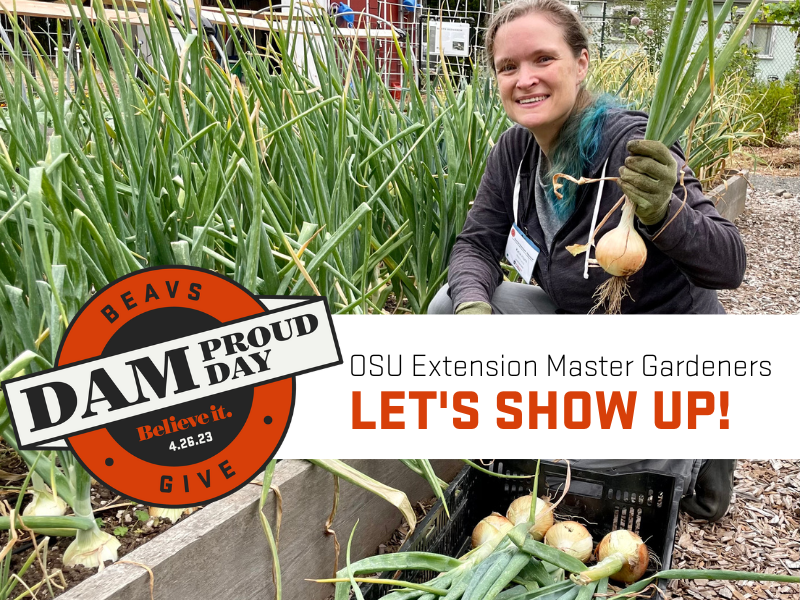
“My Master Gardener story began in 1998 when I retired and moved to rural Lake County, California. wanted to make the best of the land I lived on by educating myself about growing things. Joining the California Master Gardeners started my training which has continued to this day. Working the Help Desk suited me as I enjoy contact with the public and in every 4-hour session I research something new and learn about it in the doing.
In 2013 I moved to Salem, Oregon and immediately looked up and joined the MG program here. I needed to take the basic training over again because the growing environment is so different here in the PNW, but I enjoyed that too. Over time I have lost much of my hearing but I am lucky to have a Hearing Service Dog from Canine Companions and the Extension Office has provided accommodations including a captioned phone in the MG office.
My first love is still the Help Desk and I have learned so much from working it over the years. In the early days both in California and Oregon we had a huge library of horticulture books. Over time the library has shrunk as we use PCs more and more in our research. And I am full of admiration for the OSU professors we hear on a regular basis.
I am most proud of the fact that over the years I may have helped a few people sort out growing issues and plant problems. It is also my hope that I have made a small contribution to preserving the environment. “
—John Eells, Marion County Master Gardener Volunteer
This is but one of the many stories of the OSU Extension Master Gardener program we’re sharing this month in honor of Dam Proud Day. On April 26, Beavers everywhere will come together to support the things we do best: transformative educational experiences and life-changing research.
We are excited to be raising support specifically for our Seed to Supper program and updating our foundational resource, the “Sustainable Gardening Handbook” to reflect current knowledge. Please join us in gathering your friends and colleagues to give to support the Master Gardener Program on Dam Proud Day, at any donation level. See you (online) April 26th!











